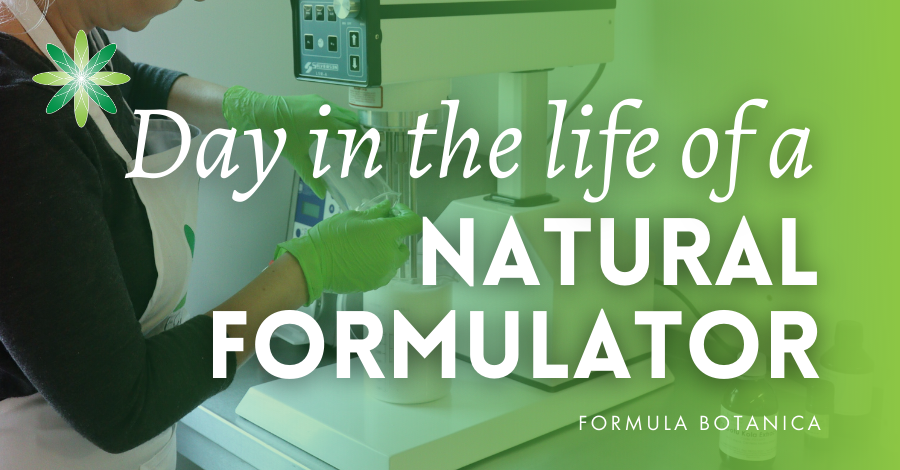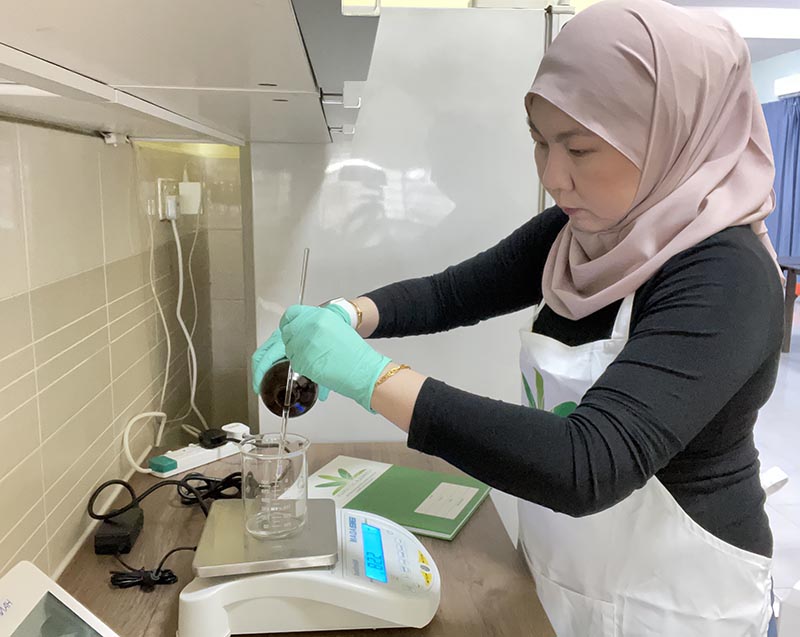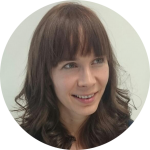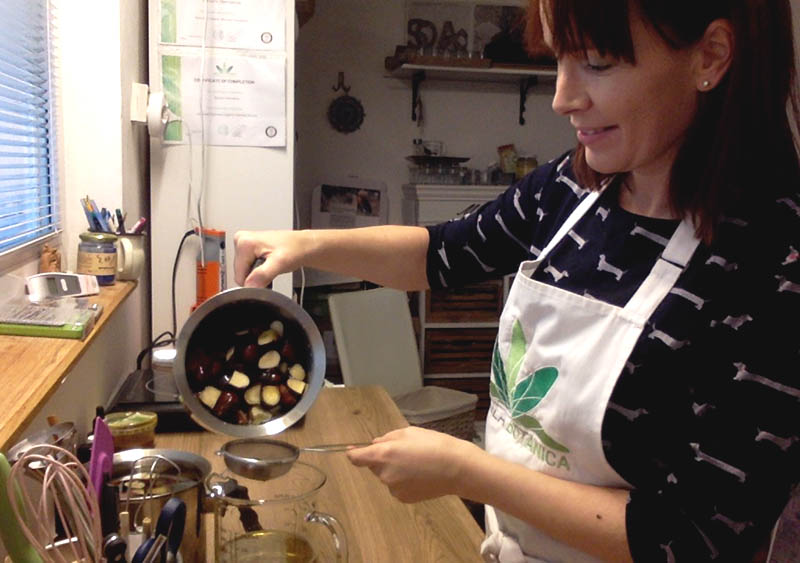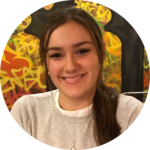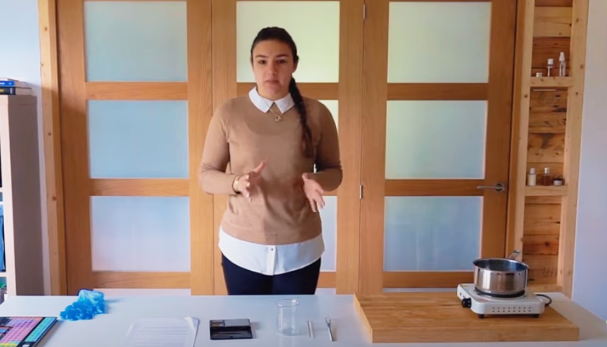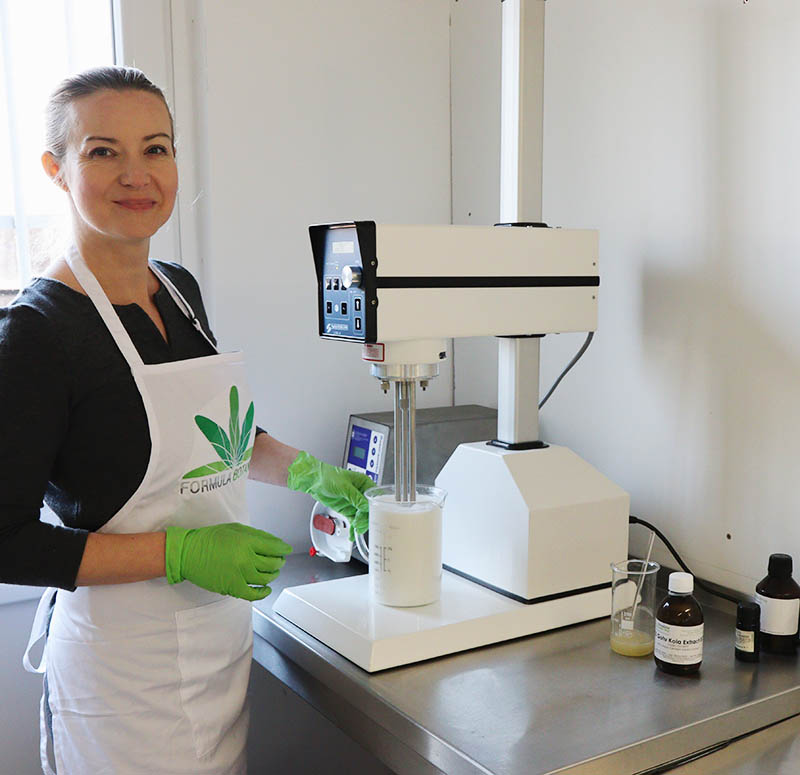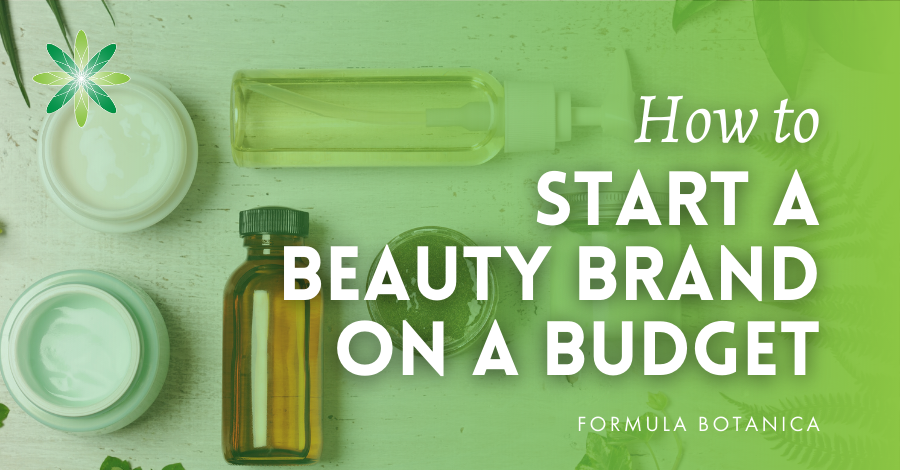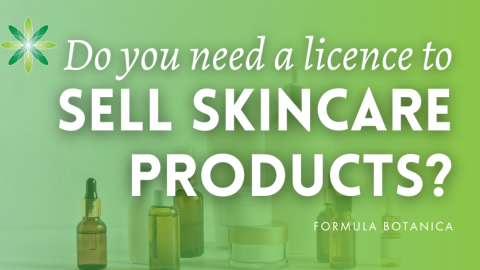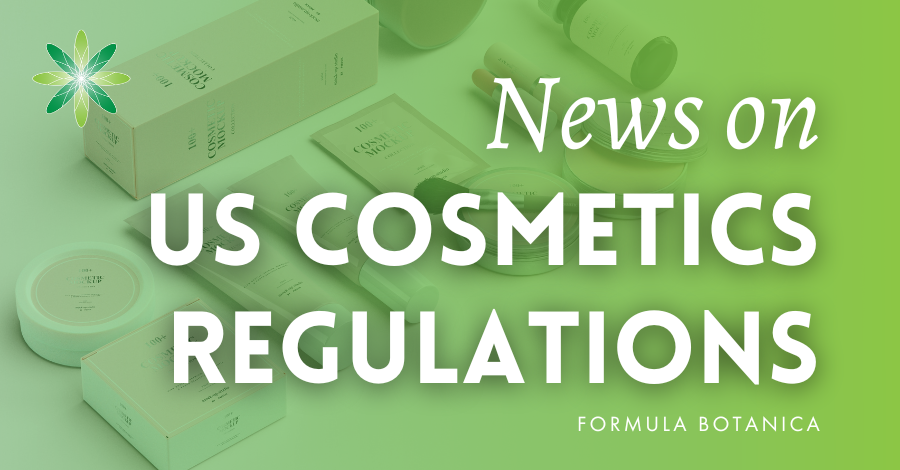If you are thinking of changing career or starting a side hustle as a natural formulator, you might wonder what a typical formulation day looks like. On this blog, we’ve already covered the basic lab tools you need to get started as well as the hygiene and safety aspects of good manufacturing practice (GMP) you need in your home lab.
But, how do you go about formulating? Where do you start when you are faced with a blank sheet in your formulation notebook?
At Formula Botanica, we teach our students to create their own unique formulations rather than be cosmetic recipe followers. The world has no need of yet another clone of a commercial skincare formulation. To make a success of a career as a natural formulator, you need to bring a unique slant to your formulations. This will set you apart and give your formulations and brand a distinctive edge if you go on to start an indie beauty business.
But even if you have a vague idea of a new formulation, what process should you follow to take it from concept to cosmetic product?
The Formula Botanica education team are here to help
Tutors Barbora, Brooke, Eliza and Miroslava take you behind the scenes of a typical lab day in their lives as natural cosmetic formulators.
They explain the processes they use to create a new product and along the way talk about why they love formulation and about the ingredients they most like using. It always helps to see our tutors in action so you can decide if natural formulation is a path you would like to follow. We are sure their enthusiasm and insights will inspire you.
What is it like to be a natural skincare formulator? @FormulaBotanica tutors talk you through their formulating process in a day in the life of their labs. #makeskincare #cosmeticformulator #homemadeskincare Share on XEliza Gong – Grading Tutor
What I love about natural formulation:
I love nature and creating natural cosmetic formulations allows me to share the magic of plant extracts, oils and their active compounds with people whose skin needs support in challenging environment, such as those caused by air pollution and lifestyle stress. I believe everyone deserves their skin to be pampered by nature’s best.
My favourite formulation:
I love to create emulsions using hot processing, which is why you’ll always find me on the hunt for new emulsifiers to test. I do develop a love-hate relationship with some emulsifiers which can be ‘fickle’ on certain formulation days. I have a few staple emulsifiers that cover a range of applications and skin-feels and I use these when developing a new formula. Emulsifiers can be versatile and be manipulated with care to achieve different viscosities, textures and skin feels. I am always impatient at having to wait 24-36 hours for the formula to ‘set’, and I still find it a thrill when it’s time to check the viscosity of the product and how it behaves on the skin.
My typical formulation day:
Research and design:
I spend a lot of time researching ingredients; this could take days or weeks depending on what I want to achieve. Now that I have been formulating for around five years, I focus on researching active ingredients to include. From experience, I now know how certain butters or plant oils behave as well as the type of emulsifiers best suited to certain combinations of ingredients. My greatest challenge is how to incorporate actives and retain a stable emulsion structure.
My lab space:
Once I have the theory sorted, a trial formulation drafted, my ingredients gathered and my manufacturing methods worked out, I set aside a day to be in my formulating space which is 10 minutes from my home. I used to formulate in a part of my kitchen when I started. As my collection of equipment and ingredients grew, I needed a bigger, dedicated and more hygienic space and especially now I am venturing into larger-scale production.
Preparation:
I start by wiping down the table top and then spray it with Isopropyl alcohol and leave it to dry. Then I take out my cleaned equipment which is kept in an airtight box. With disposable gloves on, I spray the equipment with the alcohol as well and wait an hour for them to dry.
Manufacturing process:
With my formulation to hand, I measure out the different phases of ingredients. At the same time, I switch on the hot water bain-marie to allow it to heat up. At each step of the manufacturing process, I note down on the formulation sheet if the method went to plan or needs a different approach in trial two. Once done, I leave the trial formulation in its beaker and cover it once cooled to allow it to set.
Cleaning up:
I first use paper towels to wipe down any oily residues on the equipment and then clean it using the hot water from the bain-marie. This helps remove oils and makes the equipment easier to wash off using detergents. I rinse equipment in normal tap water and then give a final rinse with distilled water before leaving them to dry in a clean environment before storing away.
Final thoughts:
Cleaning time is not wasted! I go through the whole formulation and process in my head while jotting down any pertinent points on the formulation sheet while they are still fresh in my mind. This is very important as it allows me to troubleshoot if the emulsion turns out unstable. The formulation sheet is vital as it allows me to recreate the formula with changes, if needed, and guides me on carrying out stability and challenge tests.
When I first started formulating, I was very disorganised in comparison to today. It took me a few sessions to be able to set my own routine and to know what I need to prepare first and how long the processes will take.
Tips for the new natural formulator:
Know and embrace your “why” when starting out in natural formulation. Focus on this and set a set daily/weekly time aside for formulation. When purchasing ingredients, buy in small quantities although it can be tempting to purchase in larger amounts as it is cheaper to buy in bulk. But remember, if the ingredients are not used and they expire, it will cost you far more to repurchase. We all need to consider our environmental footprint.
Barbora Harmatova – Grading Tutor
What I love about natural formulation:
I feel independent and self-reliant being a natural formulator as I can now create almost any skincare product myself in my lab. It saves me a lot of money as I can make high-performance products at a fraction of the cost, and I know exactly what I put on my body. I am a much more conscious, educated consumer and can decipher the labels on commercial cosmetics with a critical eye. For me, formulating is a wonderful blend of aromatherapy, herbalism, selfcare and pampering of oneself or others. After all, everyone loves receiving a cream or a balm as a present.
My favourite formulation:
I am in love with emulsions and I try new emulsifiers all the time. I love testing various extracts and actives and have enough eager friends to help try out my formulations. I often have to explain to people why preservatives are not the worst enemies and why they are important. There is a lot of stigma attached to preservatives and it is important to see the real picture.
My typical formulation day:
I rarely have time for a full day’s formulating these days. When my children were little, I could formulate when they were asleep, but now my practical formulating time is narrowed down to 2-3 hours. But it is amazing what I can get done if I do some solid preparation.
Research and inspiration
I grade projects of Formula Botanica students and they often inspire me with their creations; sometimes even introducing ingredients I have never heard of. Some of my other favourite resources for research and inspiration are various newsletters from industry magazines and ingredient suppliers, the Handbook of Cosmetic Ingredients and suppliers’ websites. I follow the people and businesses who are leading innovation; their enews alerts me to new and trending ingredients. The Lab at Formula Botanica is a good resource too.
My lab space
I have a separate lab next to our garage. Although it does not have a sink (which would be handy), it is a great space for storing all my ingredients, beakers and finished products.
Preparation
I always sanitise the working area with alcohol and leave it to dry. I have a tiny steriliser for glass rods, small beakers and stainless steel spatulas. I use protective equipment – gloves and apron – every time I formulate and I keep a hard-copy journal to write down all my experiments. I have to do all the washing up in my kitchen afterwards. I always wipe the residue of oils and emulsions off with a kitchen towel and then wash the beakers and glass rods in hot, soapy water rinsing well afterwards. I invested in a lab-grade pH meter and a robust homogenizer and I am happy I did.
Tips for the new natural formulator:
Formulating is wonderful time away from the regular hassle and chores of everyday life. Definitely give it a go! You really need not be a chemist to formulate. I believe we all want to be educated consumers who know what we are buying and putting onto our bodies. Skin is the largest organ which shows the overall health. If you want to start formulating, your kitchen will be sufficient at the beginning. You just need determination, time for yourself, some basic starter equipment and ingredients. Anyone can start formulating if they really want to.
Brooke Medhurst – Formulation Tutor
What I love about natural formulation:
Formulation has been part of my life for as long as I can remember. It has connected me to some amazing people across the world and played a large part in many of the experiences that have made me the person I am today.
It’s hard to choose which part of being a natural formulator I love the most; perhaps it’s selecting the natural ingredients best able to assist with certain skin concerns and working out the best way to deliver them to the skin, pleasurably and effectively. I love being able to help others make a positive difference to their skin and hair as well as allowing me to take control of my own skin health.
My favourite formulation:
My favourite kinds of products to formulate are those that are simple but still effective and full of botanical ingredients. I love creating oil blends as they are so versatile and can be used for cleansers, serums, moisturisers and haircare. Oils can have a bad reputation sometimes but I believe they are misunderstood. Once you learn to apply the right ones in the right situations, you realise that everyone can benefit from adding oils to their skincare routine.
My typical formulation day:
Research and design
I think new formulators are often surprised at how much time the research stage of formulation can take. Researching and sourcing ingredients, waiting for their delivery and setting up your physical space (if you don’t have access to a dedicated space) can take weeks. However, future batches are much faster to manufacture once you know the ingredients and amounts required.
For this reason, I will often plan the design stage separately and well ahead of my actual formulation day. My first step is to research ingredients and their benefits and their optimal amounts for the formulation I am designing. I look at their solubility and the best cosmetic product type for their delivery to the skin. I compile my notes in one place (electronic or lab notebook) with references to the original source information and suppliers.
Then, I design the formulation based on this research, allocating the ideal percentages of ingredients to trial and ensure the formula adds up to 100 percent. I then source and order any ingredients that I don’t already have.
My lab space
I am fortunate to have access to a shared garden office on my property so I use the desk there as a lab bench and that is my primary formulation space which you can see in our tour behind-the-scenes in our tutors’ labs.
Preparation
First, I first clean and sanitise my formulation space, including all surfaces and the floors, using detergents and spraying a dilution of Isopropyl alcohol (see our beginner’s guide to setting up a home lab). Then, I clean and disinfect all equipment such as beakers, stirring utensils and magnetic stirrers before taking out the ingredients from storage and arranging them according to the phases of the formulation.
Manufacturing process
The formulation process varies depending on the method of manufacture required for the product type. I take a lot of notes, including observations of the formula, pH readings and adjustments and viscosity changes, and include anything I would do differently in the next trial batch.
I bottle and label the product being careful to include the batch number and date, and note them down in my lab book. I also add the expected shelf life based on the ingredient types and their shelf lives and then carry out my own stability tests.
Cleaning up
I put all ingredients away in their storage containers and wash all equipment well in hot soapy water as well as all surfaces with hot soapy water to remove spills or residue. I then disinfect all surfaces and equipment with alcohol spray and store loose equipment to protect it and keep it clean. I clean or dispose carefully of PPE.
Final thoughts
It is important to think critically about your formulation and observe your final product and reflect on your notes. I perform stability testing as needed. Do use your product to get a feel for how it works. That way, you can decide what worked well and what needs to be approved on or adjusted next time around.
Tips for the new natural formulator:
My first tip would be to make it a priority to set aside a day to formulate. One thing I have learned is that you will never just ‘find time’ to formulate – you have to make the time. My next tip would be to start small. Start out making simple formulations with simple equipment and expand once you have the passion and desire to formulate more. As long as you are formulating for the love of it, then it will feel as if time finds you!
Miroslava Korenova – Grading Tutor
What I love about natural formulation:
One of my favourite aspects of being a natural formulator is having the chance to research and experiment with new ingredients and assessing the performance of the final products. I love the freedom of choice, the never-ending sources of information and knowledge the world of natural formulation offers us. There is so much information out there yet to be revealed and that will feed into new ingredients and ultimately into new product types.
For me formulating is like relaxing; I close the door of my lab and immediately I am in different world – world of chemical reactions, colours, scents. There, my creativity has no boundaries and can be fully implemented.
My favourite formulation
As I have some super lab equipment, I like experimenting with emulsions, but solid cleansing products are also some of my favourites. I like seeing the cooling-down stage of the emulsion evolve and discovering how it thickens up to turn into a beautifully-structured, creamy product.
My typical formulation day:
Research and inspiration
I usually get fired up to formulate when I come across an interesting ingredient. I then start thinking through some theoretical ideas of how it could work in a final product. I like a challenge so I tend to explore new, innovative ingredients.
I start by reading the usual marketing claims and their promises of what the ingredient can do. I then research the source materials on which the manufacturer bases their new product and find out about other criteria, for example the ingredient’s compatibility with natural formulation. I go over marketing flyers, MSDS, SDS or other documentation to know more about the ingredient and how to formulate properly with it.
I dig deep into the ingredient’s compatibility with other potential ingredients I might wish to include, and check the guidelines on its recommended quantity in the final product, and note any potential restrictions. The price of the raw ingredient is important to know as from that I can work out what niche of customer it suits price-wise in relation to its performance and get a sense of the role and price of the final product.
My lab space
I am lucky to have a separate room as my lab so it is always ready, waiting for a day’s experimenting. Before formulating, I ensure that I have a clean workspace, enough beakers of various volumes, stainless spoons, spatulas and glass rods as well as mixers, stirrers and a homogenizer ready as well. Then, I prepare my ingredients, scales, pH strips/pH meter (depending on the type of formula), and have clean paper towels to hand – they are always my best friend while formulating.
Preparation
Then I write down a simple formulation using this new ingredient. By trialing it first in simple formulations, I have a chance to see how it behaves with other basic ingredients, whether it has a distinct colour, smell and pH drift, and if it needs special handling or a certain manufacturing process. If all goes well with these first, basic trials, I start to think through a more challenging formulation and will include more expensive ingredients.
Manufacturing process
I start with precision, weighing out ingredients carefully. At this routine stage, it is important not to forget to add any ingredients; this can happen easily if you have 30 ingredients or so. When I work with a more complex formula, I always check off the ingredients one by one as I weight them out separately, and then again as I add them to the formulation.
My advice is when formulating to keep your eyes open and write down anything unusual or tricky to carry out. Of course, if the process goes smoothly, note that down too. Try different versions of a formulation, perhaps swapping one special ingredient with another or using differing percentages or combinations and see which works best. Observe your samples for a few weeks to check their stability and again, make notes on what you observe.
Final thoughts
Sometimes ingredients behave totally differently from expected. I learn from all my observations and try to figure out which chemical processes are causing issues. Formulating is also about analytical thinking and reasoning.
Tips for the new natural formulator:
Like Brooke said, I advise starting out simply and this applies to everything from formulations to equipment. You do not need any expensive equipment nor overly fancy ingredients to start with when you are experimenting and learning about formulation processes such as making emulsions.
Have your formulation notebook to hand and write down all your observations while formulating. Do not be scared of failure – the formulation mistakes we make can be our best teachers! Keep your eyes open, follow your instincts and intuition and think out of the box. There is always a way to do something differently from other formulators and only by experimenting will you design and succeed with innovative products. Never stop learning and be curious. The world of the natural formulator demands it.
FREE TRAINING
Learn how to become an
Organic Skincare Formulator
FREE TRAINING
How to become an
Organic Skincare Entrepreneur
FREE TRAINING
How to become an
Organic Skincare Entrepreneur
Leave us a comment

Liz was Formula Botanica’s Content Coordinator between August 2020-2024. Liz worked as a professional blogger, journalist and site developer for many years and was also part of the Formula Botanica student community. Read more about the Formula Botanica Team.

